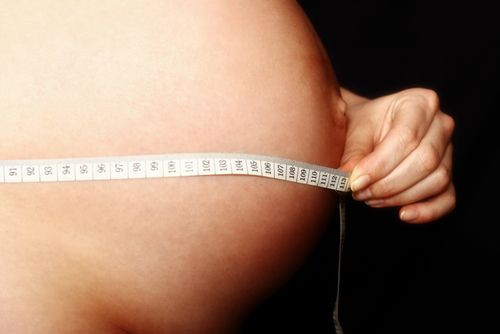
Amidst drug wars and an immigration-migration crisis, Mexico faces another significant public health epidemic: teen pregnancies. In fact, according to the 2012 National Health and Nutrition Survey (ENSANUT), 51.9 percent of sexually active females aged 12 to 19 have become pregnant in their teens or younger. But now a new report has found that one in three pregnant women in Mexico are under the age of 20.
The report -- "Maternity childhood" Population Fund United Nations (UNFPA) -- also reveals that Mexico is the leading nation in teen pregnancies with the alarming rate of 64.2 teen pregnancies per thousand births. Generally speaking, teen pregnancies are associated with poorer living conditions and the girls receiving lower levels of education. According to the World Health Organization (WHO), the risk of maternal death is four times higher among adolescents younger than 16 years than women in their twenties in Latin America.
What's the reason behind this rate? Global Health PR explains:
In Mexico there is a lack of information about contraceptive methods and how to use them effectively. Almost 25 percent of teenagers surveyed do not know how to use contraceptive methods, while 35 percent responded they haven’t received information about contraception. If so, they still have many doubts. As teenagers continue with their active sex lives, 40 percent do not use contraceptive methods or use them just occasionally. Almost 20 percent of them didn’t plan to have sexual relations, but did anyway.
Fighting teen pregnancy is important, as there are many risks associated with both the mother and the newborn. Take, for instance, the 2012 report -- Save the Children UK - Every Woman's Right: How Family Planning Saves Lives -- which found that girls under 15 are five times more likely to die in pregnancy than women in their 20s. What's more, the report indicates that babies born to younger mothers are at higher risk and 60 percent more likely to die if their mother is under the age of 18. Other health conditions associated with teen pregnancies, include: anemia, malaria, HIV and other sexually transmitted infections, postpartum hemorrhage and mental disorders, such as depression.
"Teenage pregnancy is definitely dangerous for a combination of factors," explains Dr. Viviana Mangiaterra, from the WHO's Department of Making Pregnancy Safer, in a WHO podcast. "There are biological factors, the body is not ready, it is a growing body. But social-economical aspects are extremely important as well as the lack of access to services. Children that are born from a teenager mother have 50% higher risk to die than newborns that are born from older mothers."
In Mexico, several measures are being taken to reduce the rate of teen pregnancy. The National Center for Gender Equity and Reproductive Health has a website with tools to help women make informed decisions and learn about sexual responsibility. The government will also be releasing a campaign to raise awareness about the public health epidemic.
© 2025 Latin Times. All rights reserved. Do not reproduce without permission.




